In the course of Britain’s long-term involvement in the Atlantic slave trade and its colonisation of Africa, the British government collected many records relating to the history of Africa. These are now available for viewing at The National Archives. The records were collected for administration and generally reflect the views and attitudes of officials. While the African voice is recorded more rarely, the documents include much information on conditions in Africa and its indigenous people. They are an essential resource for the history of Africa.
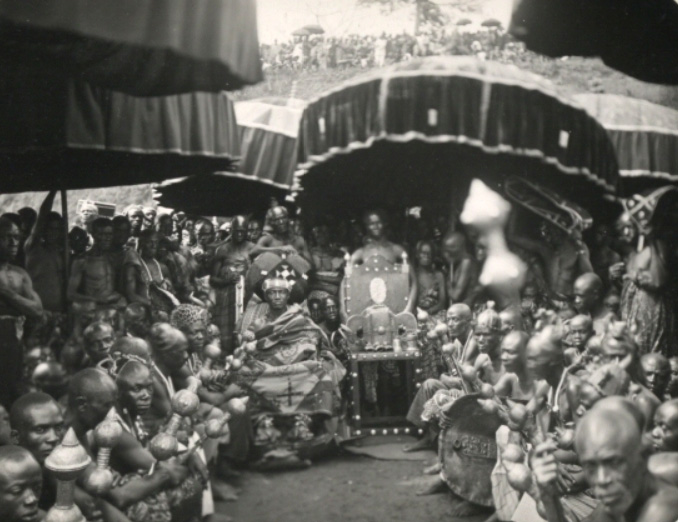
Many researchers will want to start with Colonial Office records, but this blog will look beyond those, although it is by no means comprehensive. In any case, it’s always worth carrying out a more general search of Discovery, our online catalogue, as material on Africa can be found in the records of many government departments.
Colonial Office
Once formal colonies were established, the documents were grouped by former colony. These can now be found in different Colonial Office (CO) series. For each former colony there are volumes of correspondence, records of the local government assemblies, acts and government gazettes. Most of the material dates from the 19th and 20th centuries, but the Sierra Leone correspondence in CO 267 goes back to the 1760s. Records specifically relating to the exploration of Africa can be found in series CO 2.
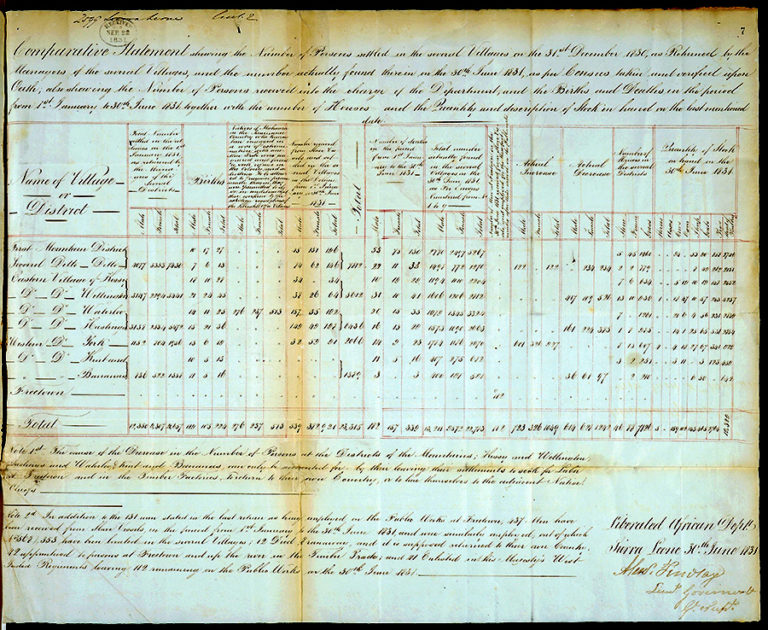
It’s difficult to generalise about the content, which is very varied. The trade in the enslaved is an important topic in the early records. Accounts of African resistance and reaction to colonialism feature prominently, and colonial officials were keen observers of African politics and administration. In the 20th century, the British government became more interested in turning the colonies to economic ends. There is consequently plenty of material on environment, agriculture, mining, public health and infrastructure.
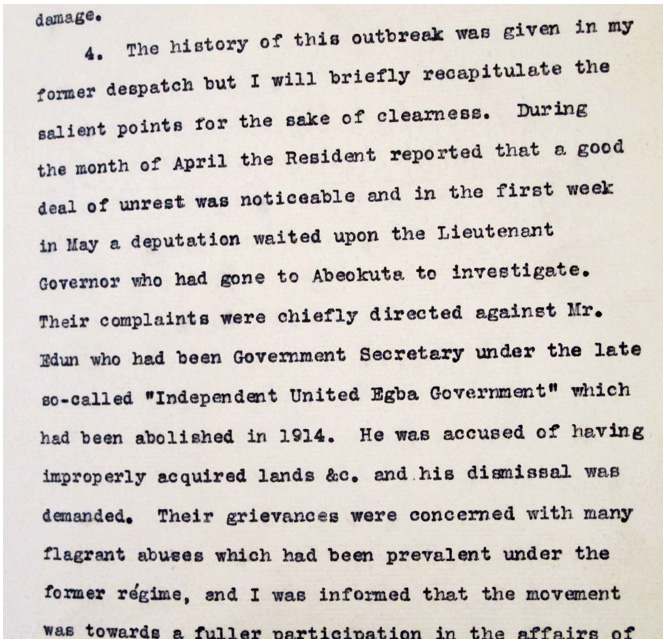
Because of the grouping by colony, the records series are easy to locate in the online catalogue, but they are not described in any detail before 1926. Our research guide explains how to use the original finding aids and more about the content. The Institute of Historical Research has published Mandy Banton’s guide to the Colonial Office records, Administering the Empire, which lists the different records available to each territory and gives much additional detail.
But let’s look more widely at what is available on Africa at The National Archives.
The Royal African Company and other records of the slave trade
Some of the earliest records relating to Africa at The National Archives are those of the Royal African Company. The Company was founded in 1660 and survived in various guises until the 1820s. It came to play a prominent part in the brutalities of the transatlantic slave trade from West Africa. The records of the Company are found in catalogue series T 70 and date from the 1660s.
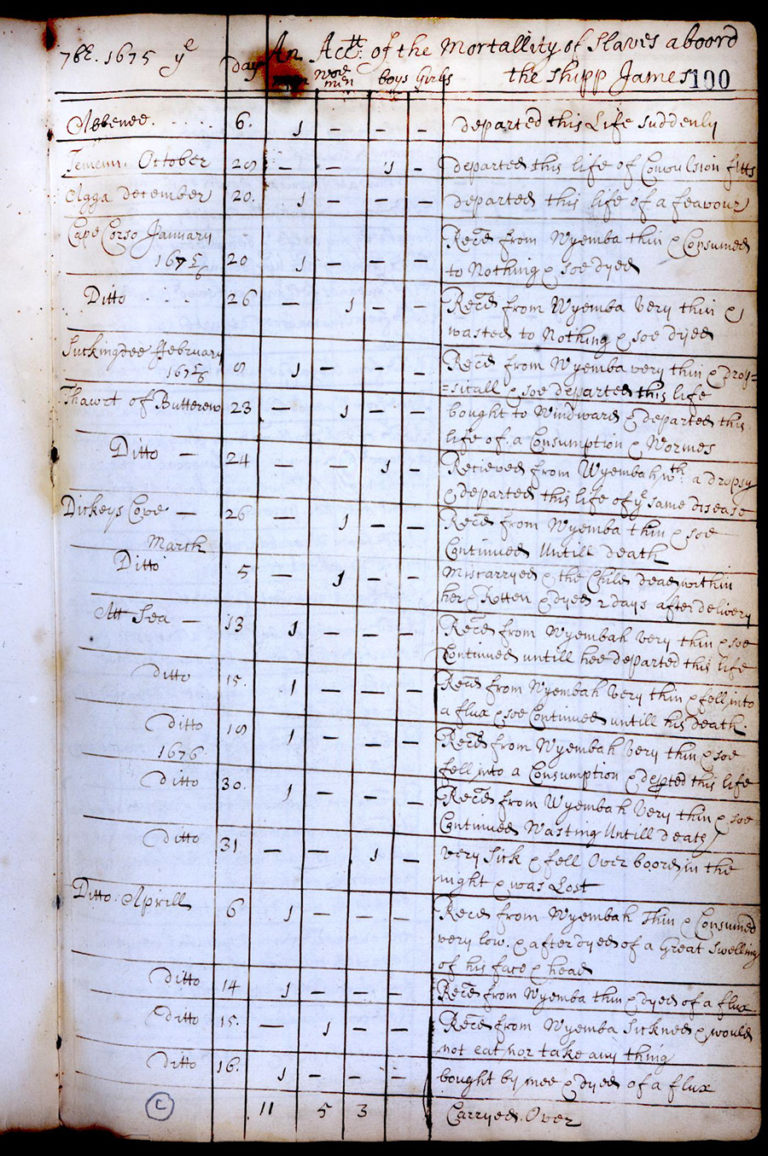
Many of the records concern the administration of the Company’s finances, but there are also accounts of conditions in the coastal forts in which the enslaved were held and of voyages to the Caribbean.
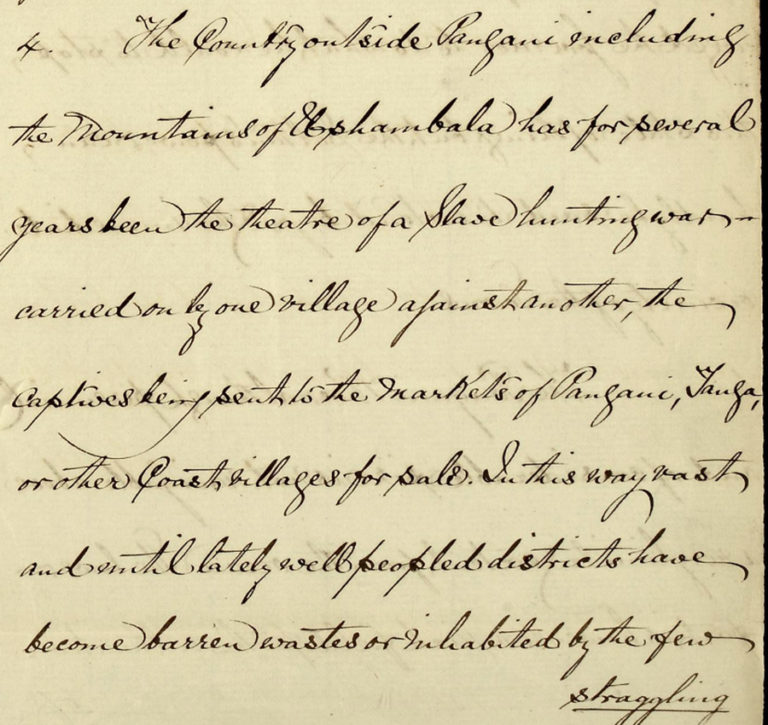
The British government was active in the suppression of the slave trade after its abolition in the Empire. The records of the Foreign Office’s Slave Trade Department at FO 84 are a key source, with many related documents among the Admiralty records. Many of the documents concern East Africa and the trade in the Indian Ocean.
Foreign Office records
Before the establishment of formal colonies, the British government placed consuls in various parts of Africa. Their main function was to look after the interests of British trade, to manage relations with local polities and to observe the activities of rival powers. These consuls were often keen observers of local conditions and events. Their reporting to the Foreign Office therefore provides an important source for the period before the establishment of formal colonies.
These records can be found in catalogue series FO 2. The earliest material dates from 1825 and runs to 1905. Much of the series dates from the late 19th century and the ‘scramble for Africa’, when the European powers vied with each other for the control of territory. The volumes (there are almost a thousand of them) are not catalogued in detail, but the catalogue entries usually mention the name of the consuls and the regions in which they were working.
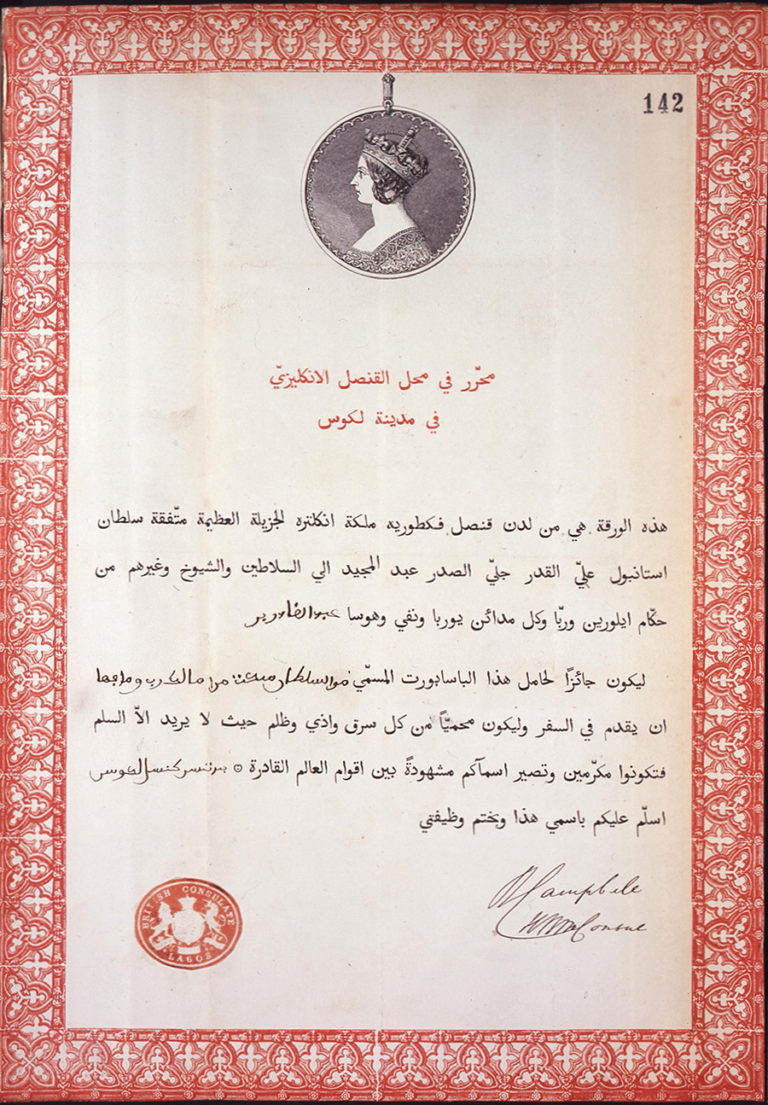
It was the practice of the Foreign Office to print some of the significant material as confidential print, now in series FO 403. The file titles are rather general, but the researcher can browse through the catalogue entries to get an idea of the types of topic covered in the correspondence.
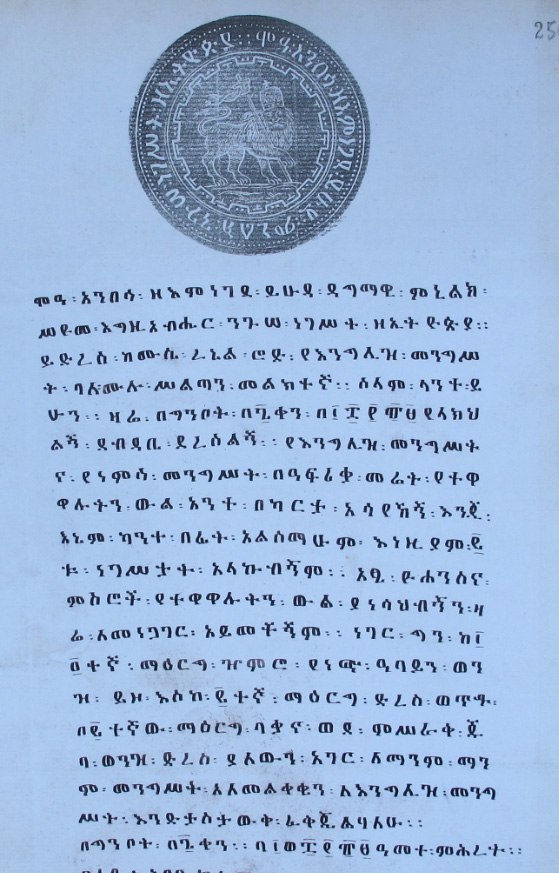
Another notable series from the 19th century is the Foreign Office correspondence series on Abyssinia (Ethiopia) at FO 1. The series consists of material received by the British consul in Addis Ababa and there is strong material on the British expeditions to Abyssinia in 1867, 1884 and 1897. While the records reflect the views of British officials, they nevertheless contain much information on politics and life in Abyssinia, Egypt (and Sudan). Other parts of North Africa are most prolifically covered in the Ottoman Empire correspondence series at FO 78.
After 1906, the Foreign Office correspondence on Africa is included in the general series FO 371. The cataloguing detail is scanty, but there is an invaluable online index, which is available online. You can use our guide to Foreign Office and Foreign and Commonwealth records from 1782 to find out how to access and use the indexes.
Britain’s continuing relationship with African countries in the postcolonial period is documented in many Foreign and Commonwealth Office and Department of Overseas Development files. Keyword searching is an effective means of locating this more recent material.
Military records
The very extensive involvement of the military in Britain’s colonial activities required that the War Office (WO) and Admiralty (ADM) produced many documents relevant to African history. These often describe conflict with African polities, but there are also details of survey and exploration. The British relied heavily on Africans to meet their requirements for troops and labour. Two of the major British African regiments, the West African Frontier Force and the King’s African Rifles (drawn from east and central Africa) have records series at CO 445 and CO 534 (the latter can be downloaded free of charge).
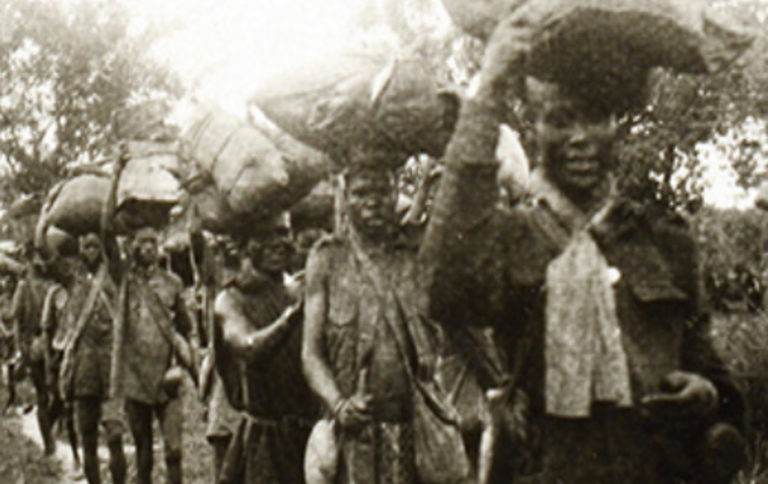
The documents are particularly rich for the First World War. The war diaries of the individual battalions in WO 95 provide a valuable record of the activities of African soldiers during the conflict. There is much detail on the conditions endured by African soldiers and the records are available online.
African nationalism and the road to independence
After the Second World War, African resistance to colonialism and the drive for independence were prominent on the British government’s agenda. Relevant records can be found by searching the online catalogue using keywords. Cabinet Papers Online includes plenty of high level policy documents and they can be downloaded free of charge.
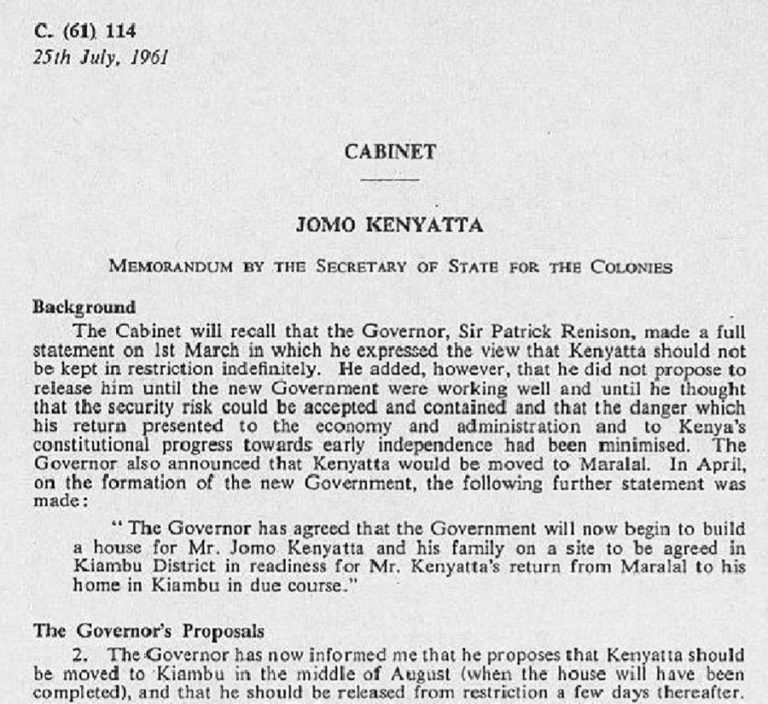
A key resource is records of former colonial administrations in FCO 141. While some of this material is replicated in other Colonial Office series, there is more local detail.
Maps and photographs
The Colonial Office kept an extensive photographic collection, which can now be found in series CO 1069. It includes many albums on Africa, dating from the 1870s. Many of the earlier albums are particularly valuable. In the years before the First World War, Colonial Office officials became interested in anthropology and commissioned studies by, for example, Northcote Whitridge Thomas. The photographs are an important record of African life, dress and custom, as well as of landscape and towns. A selection of the photographs have been posted on Flickr, as Africa through a lens.
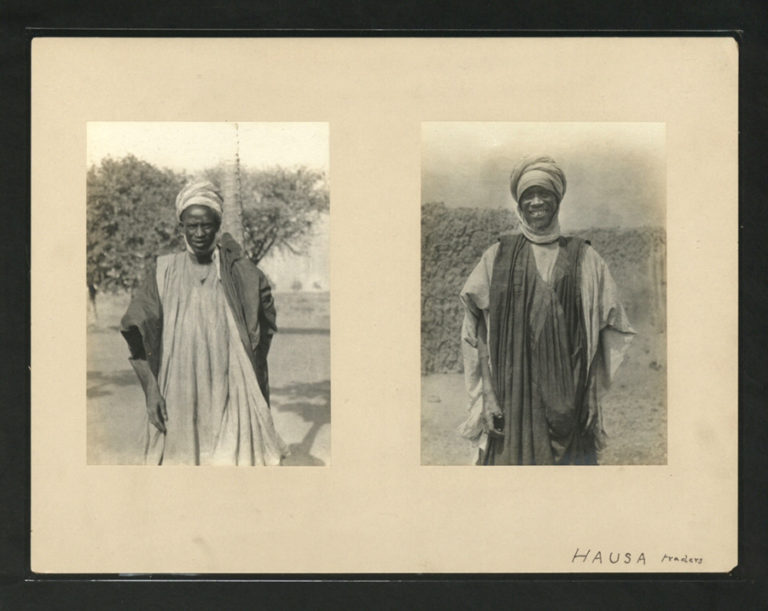
Maps contextualise documents and provide graphic evidence of change. The collection includes an extensive range of regional and local maps of Africa. Many of the most significant maps have been collected into series CO 700 and CO 1047, with coastal views in ADM 344, where they can be searched by keyword. It is very common to find maps (often not identified on the catalogue) in correspondence files, so researchers may well find other maps in the course of their work.
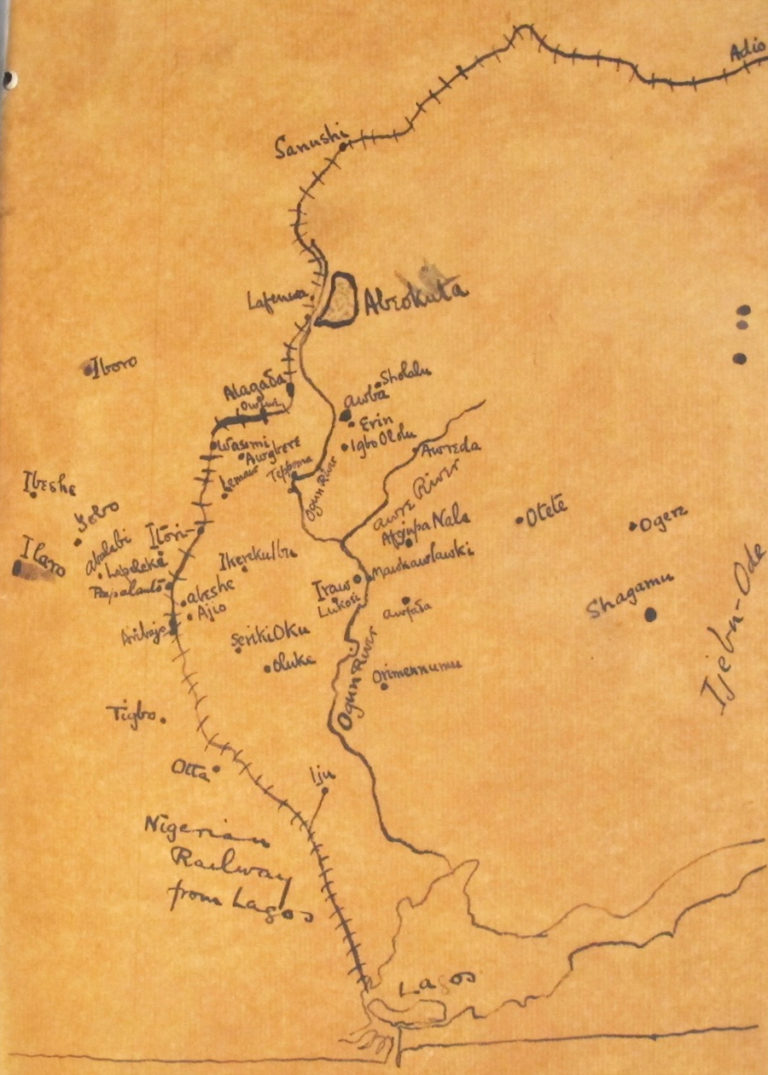
We wish you every success with your research!
this is a broken link:
https://www.nationalarchives.gov.uk/help-with-your-research/research-guides/foreign-commonwealth-correspondence-and-records-from-1782/Cataloguing
I believe it should be without the “Cataloguing” at the end:
https://www.nationalarchives.gov.uk/help-with-your-research/research-guides/foreign-commonwealth-correspondence-and-records-from-1782/
Many thanks Ian.
This is amazing.
Thank you, Ian.